Do you often notice a strange gas smell in your home coming from your fireplace when it is off? This issue can be disconcerting and hazardous, as natural gas leaks need to be taken seriously. If you suspect that the odor you are smelling does not come from burning wood or some other source, it could very well be emitting from your free-standing or built-in fireplace. It’s important to take action immediately if this is the case; in this blog post we’ll explain the possible causes of a gas smell from your fireplace when off and how best to fix them. Read on for helpful information!
How Do You Know If Your Gas Fireplace Is Leaking?
Gas fireplaces have become increasingly popular as a more efficient and safer alternative to traditional wood-burning models. Unfortunately, gas leaks can be a major safety hazard for your home. If you smell gas coming from your fireplace even when it is not in use, this could indicate that your unit is leaking. Other signs of a leak include an orange or yellow flame, unusual noises, and an excessive amount of condensation on the glass front of the fireplace.
Physical Symptoms Caused by Gas Leaks
When gas leaks from your fireplace, it can cause a wide array of concerning physical symptoms. In some cases, the smell of gas will be the first indication that something is amiss.
Other times, you may experience nausea, headaches, dizziness, or breathing difficulties due to inhaling fumes or other air-borne particles. If you feel any of these signs after lighting and extinguishing your fireplace several times in a row, proceed with caution and seek medical attention if necessary. Other than exposure to dangerous fumes, there could be other complications caused by faulty fireplaces as well. In some cases, a buildup of carbon monoxide can occur from inefficient burning and ventilation which can lead to more serious health issues. [1]
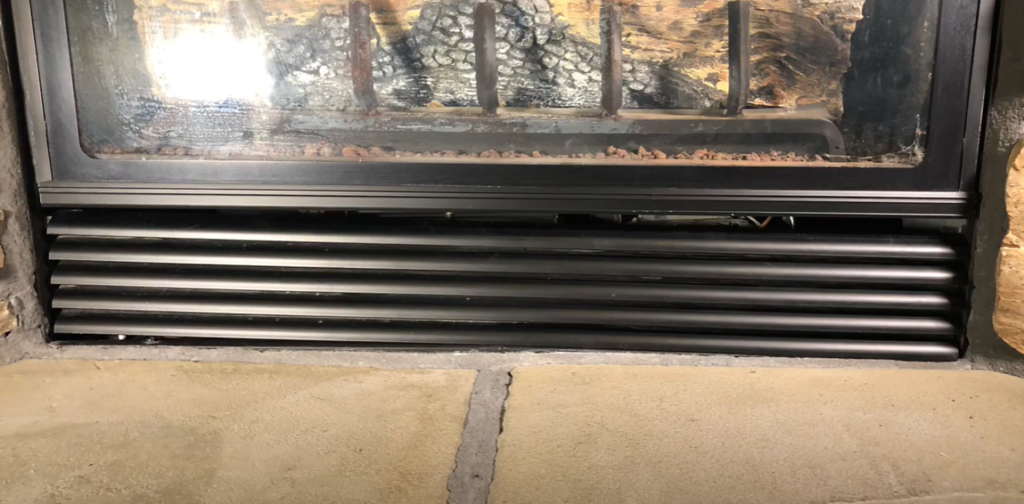
Can Gas Fireplaces Cause Carbon Monoxide Poisoning?
Gas fireplaces are a great and convenient way to heat your home, but like all types of fuel burning appliances, care should be taken when using them. Gas burning fireplaces can emit carbon monoxide gas if not properly vented. Carbon monoxide is an odorless and colorless gas that can cause serious health problems or even death if left unchecked. If you detect any kind of gas smell coming from your fireplace when it’s turned off, you may have carbon monoxide in your home.
Is It Normal to Smell Gas with a Gas Fireplace?
It is normal for your gas fireplace to give off a slight smell of gas when it is in use, however if you continue to smell the fumes when your fireplace is not in use, it could be an indication that there’s something amiss with the system. The most common causes of a persistent gas smell include:
- A malfunctioning or incorrectly installed pilot light
- An issue with the thermocouple switch
- A leaking or blocked gas line
- Cracks in the venting system.
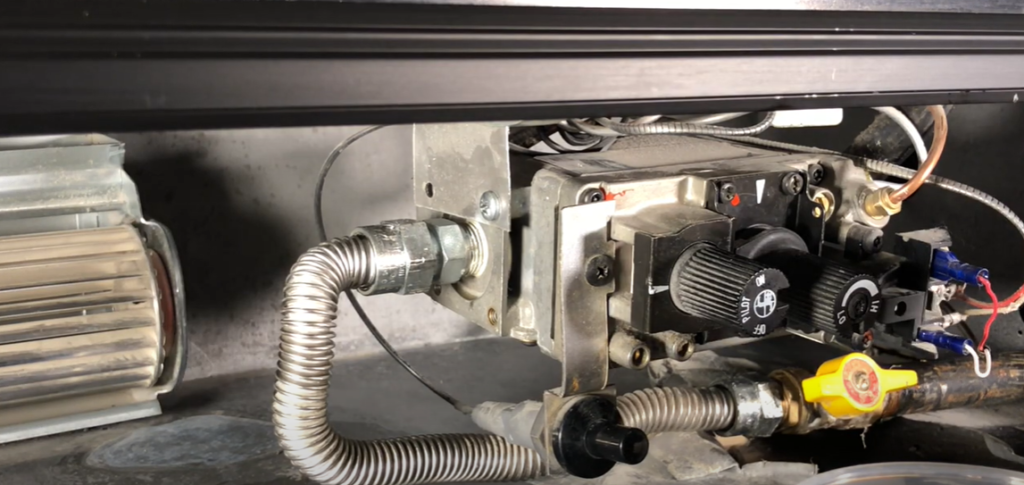
What Should You Do if You Smell Gas?
If you detect the smell of gas from your off fireplace, it is important to act quickly. The source of the gas leak should be identified and addressed immediately. The steps listed below will help identify the source of the problem and prevent a dangerous situation:
- First, open all windows in the room to ensure adequate ventilation of any accumulated combustible vapors. Do not use electrical switches since they may create sparks that could ignite any accumulated gasses or fumes.
- Shut off the gas supply valve on the outside of your home if it is determined that there is an active leak (confirmed by smelling fumes). If there are multiple valves leading into your house, shut off each one until you find the one causing the smell.
- Call a certified and licensed technician to check the entire gas system for any leaks or damage that could be causing the smell of gas. The technician will use specialized equipment to pinpoint the source of the leak, measure its severity, and make necessary repairs or replacements.
- After all repairs have been completed (as recommended by your technician), turn on the main valve outside slowly and allow it several minutes to pressurize before turning on pilot lights or other appliances within your home.
It is important to remember that even a seemingly small gas leak can cause serious health issues if left unchecked. If you detect any signs of gas in your home, it is crucial to take immediate action to prevent potential hazard risks.
No matter the cause of the smell of gas from your off fireplace, taking the necessary steps outlined above will help ensure that your home remains safe and secure. Protect yourself and your family by following these simple guidelines and making sure that your gas system is up-to-date and functioning properly at all times. [2]
Newly Installed Gas Systems May Start with an Odor
If you have recently installed a new gas fireplace, furnace, or stove in your home, then it is possible that the reason for the smell of gas coming from your fireplace when it is off could be due to your new system. Anytime a gas line has been installed, there will be a slight odor associated with it until the lines are properly aired out and all of the air has been cleared from inside. To ensure that this is done correctly and safely, always consult an experienced technician who can check for any leaks or other potential issues.
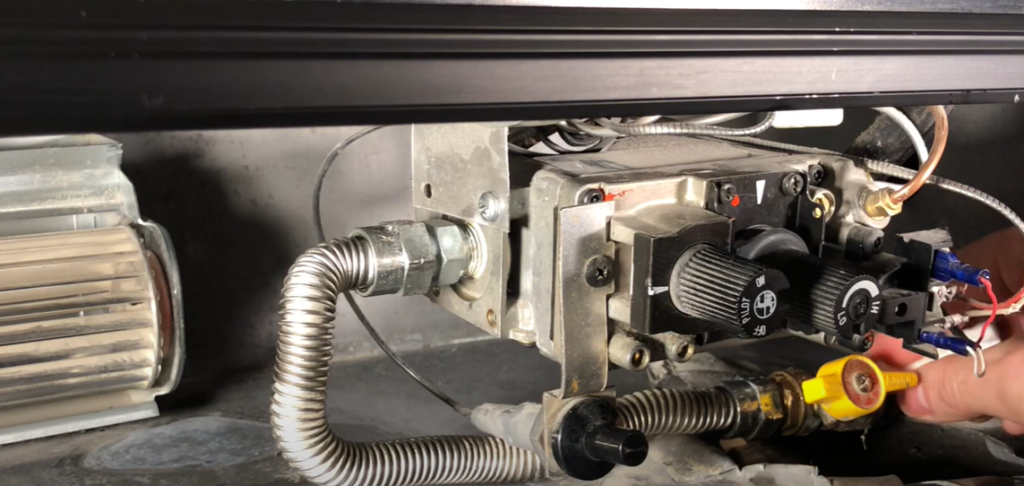
When Is It an Emergency?
If you smell gas coming from your fireplace when it is off, it is important to take immediate action. Gas leaks can be dangerous and cause a fire hazard if not attended to right away. If you notice that the smell of gas lingers even after you turn off the fireplace, evacuate your home immediately and contact your local fire department or utility company for assistance. It is also wise to call a certified technician who specializes in gas line repair as soon as possible to inspect and fix any potential issues with your fireplace. Do not attempt to fix it yourself!
Once the source of the smell has been identified and fixed, there are several steps you can take to ensure that similar issues do not arise again in the future:
- Make sure that the pilot light is off when the fireplace is not in use, and that it is lit correctly before turning it back on.
- Check the gas line for any potential leaks or blockages which could prevent proper airflow and cause a build-up of gas residue.
- Have your fireplace inspected regularly by a certified technician to ensure its safety and performance.
- Ensure that all vents, flues, and chimneys are clean and free from obstructions which could restrict air flow and lead to carbon monoxide accumulation as well as an increase in combustible gasses within your home.
- Test smoke detectors every month to make sure they are functioning properly in case of fire or gas leak.
- Make sure to follow the manufacturer’s instructions for proper use of the fireplace and regularly check for any wear and tear or faulty parts which could lead to a gas smell when off.
- If possible, install a carbon monoxide detector near your fireplace to detect any dangerous levels of this toxic gas in your home before it becomes dangerous.
By taking these steps, you can be sure that your family is safe from potential gas leaks and other hazards related to the use of your fireplace. Remember, if you ever suspect a gas leak in or around your home, take action immediately and contact the appropriate authorities or technicians right away! [3]
A Well-Designed System Helps Reduce the Stink
If you are tired of the lingering smell of gas from your fireplace, consider investing in a well-designed ventilation system. Properly designed systems can help reduce the amount of air that escapes through the chimney, significantly reducing the odor. This type of system typically uses natural ventilation such as vertical exhaust flues or mechanical drafts to ventilate the area and expel odors. If you have an existing gas fireplace but don’t have a properly designed system, it may be worth consulting with a professional who can assess your situation and recommend appropriate solutions.
In addition to reducing odors, proper venting helps ensure that toxic gasses like carbon monoxide (CO) and nitrogen dioxide (NO2) do not build up in the home, which can be hazardous to your health. If you suspect that the smell of gas is coming from an unsafe source such as a leaking pipe or appliance, contact a professional immediately for help.
Finally, make sure you are using the right type of fuel for your fireplace. Natural gas should never be used in a wood-burning fireplace, as it can damage the appliance and create dangerous situations. If you are unsure of what type of fuel to use, consult with a professional or read your owner’s manual for specific instructions.
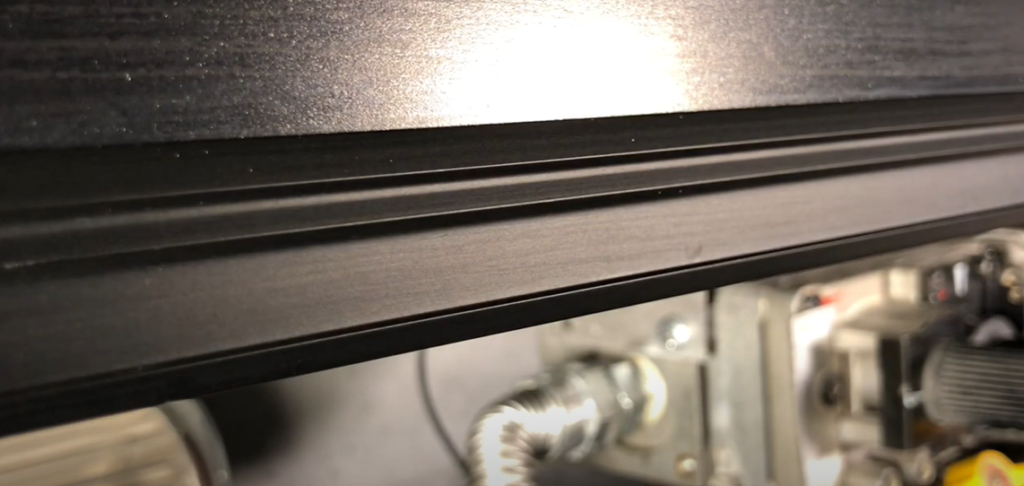
How To Test Your Fireplace Gas Valve for Leaks?
If you suspect that your gas fireplace is leaking, it’s important to test the gas valve for leaks. The first step is to turn off all of the valves associated with the fireplace and then check for any smells or sounds coming from the area. If there is an odor, it could indicate a leak in the gas valve. You can also use a soapy water solution applied to each joint on the valve and look for bubbling or swelling in order to detect any potential issues.
Once you have tested the valves, be sure to re-open them fully before turning on your fireplace again. If no leaks are detected and you still smell gas when your fireplace is off, contact a professional technician as soon as possible to investigate further. [4]
How To Prevent Leaking Gas Valves?
Gas valves are designed to control the flow of gas into your fireplace and should be inspected regularly to ensure they are not leaking. Leaking gas valves can cause a strong smell and even be dangerous if not caught in time. To prevent this, it is important to properly maintain your valves with regular checks for any damage or leaks.
First, check the connections around the valve for any signs of corrosion or looseness. This could indicate a leak that needs to be addressed immediately. If there is corrosion present, use steel wool to clean away any build-up before tightening the connection further. Make sure that all connections are secure and tight before proceeding with regular maintenance checks.
Next, inspect the gasket and seat on the valve body. If there are cracks or damage present, it will need to be replaced as soon as possible. This can prevent gas from leaking and reduce the chances of a strong smell coming from the fireplace.
Finally, check all seals around the valve. These should be tight and secured in place without any signs of wear or tear. If there is visible damage to these seals, they should also be replaced right away. It is important to regularly inspect your gas valves for any signs of leakage or damage since this can cause a noticeable odor and even pose a safety hazard if not taken care of quickly. With regular maintenance checks and prompt replacement when needed, you can ensure that your fireplace runs safely and efficiently at all times. [5]
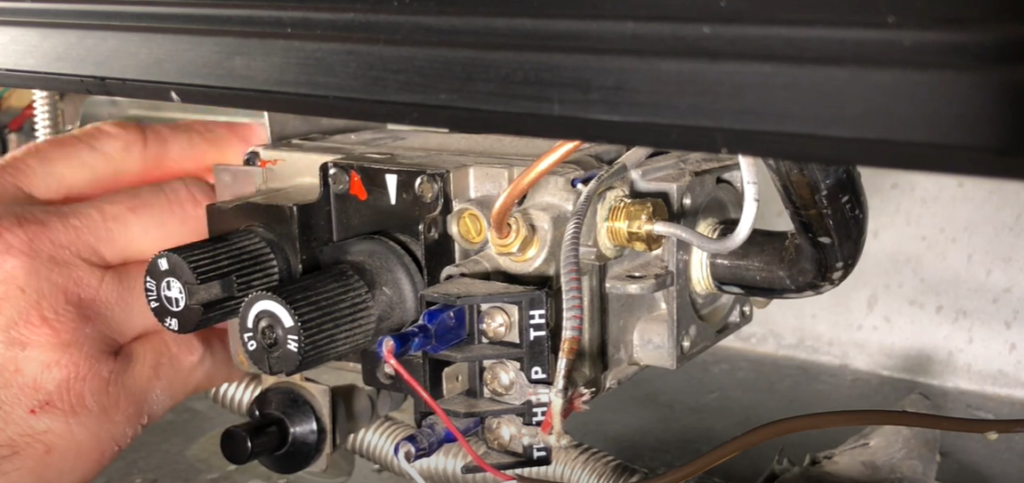
FAQ
Why does my gas fireplace smell when it’s off?
The most common cause of a gas fireplace smell when it’s off is an accumulation of soot and creosote, which can build up inside the chimney and exhaust system over time. When heated, these particles release their odor into the room. To fix this, you should have your chimney professionally cleaned to remove any blockages or buildup that may be causing the smell.
What are other possible causes of a gas fireplace smell?
There may be other potential causes for a gas fireplace smell such as a malfunctioning vent or flue, or a faulty seal around the appliance itself. You should also check to see if there is any debris trapped in the burner or air intake ducts that could be releasing bad odors. If none of these solutions work, then it’s best to contact a qualified gas technician for further assistance.
What can I do to prevent my gas fireplace from smelling?
Regularly cleaning the interior and exterior of your gas fireplace is the best way to reduce the chances of any odors occurring. You should also have your chimney professionally cleaned on an annual basis and make sure that any seals or vents are properly sealed so as not to allow in outside air that may contain unpleasant odors. Additionally, checking for proper ventilation and air circulation around the appliance will help keep bad smells away.
Are there any safety concerns I should be aware of regarding a gas fireplace smell?
Yes, it is important to keep safety in mind when dealing with a gas fireplace smell. If you detect a strong odor, it is best to get outside and away from the area immediately as this could indicate a potential gas leak or other hazardous issue. Additionally, never attempt to clean your chimney yourself as this can be dangerous without the right tools and expertise. It’s always best to contact an experienced professional for help in these situations.
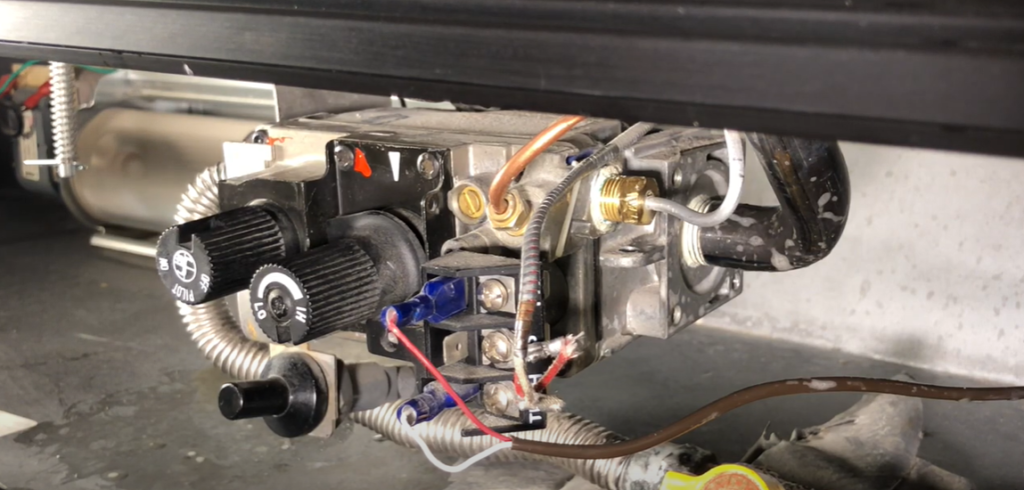
Does my gas fireplace need regular maintenance?
Yes, it is important to have your gas fireplace inspected on a yearly basis by a qualified technician to ensure that it is running correctly and safely. This will also give them a chance to address any issues or concerns that may arise during the inspection process, such as odors from the appliance or faulty venting. Regular maintenance is a critical factor in keeping your gas fireplace running properly and safely for many years to come.
How do you get rid of the gas smell in a gas fireplace?
Gas fireplaces that produce odors typically need to be serviced. The first thing you should do is check the pilot light for any buildup of dirt or debris in the area around it. This can restrict oxygen flow, causing a gas smell when the fireplace is turned off. If necessary, clean the pilot light and area surrounding it with compressed air and a soft brush. Next, inspect the entire unit for cracks and other signs of damage. A cracked burner pan or main burner can cause an odor since too much gas can escape through these areas, resulting in an uncomfortable smell when not lit. Repair any damaged components before continuing. If your fireplace uses a thermocouple, make sure it is working properly as well. A thermocouple is a safety device that cuts off the gas supply when the pilot light goes out. A malfunctioning thermocouple can cause a lingering smell, as it will continue to supply gas into the fireplace despite not being lit.
Do gas fireplaces need to be cleaned?
Yes, gas fireplaces need to be regularly cleaned and serviced. A buildup of soot and ash can clog vents, causing the fireplace to produce gas smell when it is off. To prevent this from happening, make sure to clean your gas fireplace once every year. Turn off the gas valve before beginning any cleaning or servicing of the fireplace. To properly clean a gas fireplace:
- Vacuum around the hearth area to remove dirt and dust.
- Remove ash build-up from the burner pan with a wire brush.
- Use rags and warm water to wipe down the interior walls of the fireplace, including all metal surfaces.
- Clean out any debris that has accumulated in the chimney vent using a chimney brush.
- Vacuum the floor around the fireplace to remove debris and dust.
If you are having problems with your gas fireplace that go beyond cleaning, it’s best to call a professional for advice. A qualified technician can inspect your fireplace and recommend any necessary repairs or replacements. They can also ensure that all safety measures are in place and operating correctly. With regular maintenance from a professional, your gas fireplace will be free of odors and safe to use again.
How do I know if my fireplace has carbon monoxide?
If you smell a gas odor coming from your fireplace, it is possible that it could be emitting carbon monoxide. It is important to take any suspected carbon monoxide exposure seriously and take steps to ensure the area is safe. Signs of carbon monoxide poisoning include headache, nausea, dizziness, shortness of breath, and confusion. If you suspect you or someone in your home may have been exposed to carbon monoxide, get out of the house immediately and call 911. Have your fireplace inspected by a professional as soon as possible to identify and resolve any potential issues.
Useful Video: Why Does My GAS FIREPLACE SMELL?
Conclusion
If you’ve noticed a gas smell from your fireplace when it is off, the most likely cause is a seal or gasket issue within the system. In that case, it’s important to address the problem as soon as possible to avoid any potential health risks and further damage to your fireplace. The best course of action is to contact a certified chimney sweep or HVAC technician who can come inspect and repair your fireplace so you can get back to enjoying it with peace of mind. With their help, you should be able to resolve the issue quickly and safely.
References:
- https://fosterfuels.com/blog/why-do-my-gas-logs-smell/
- https://www.bobvila.com/articles/gas-fireplace-smells-like-gas/
- https://fireplacetips.com/can-gas-fireplaces-leak-gas/
- https://fullservicechimney.com/why-your-gas-fireplace-stinks/
- https://www.syles.ca/should-my-gas-fireplace-smell-like-gas-when-i-first-turn-it-on/

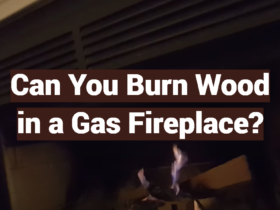
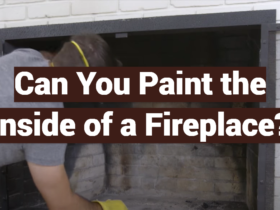

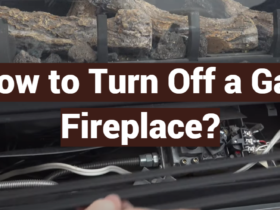
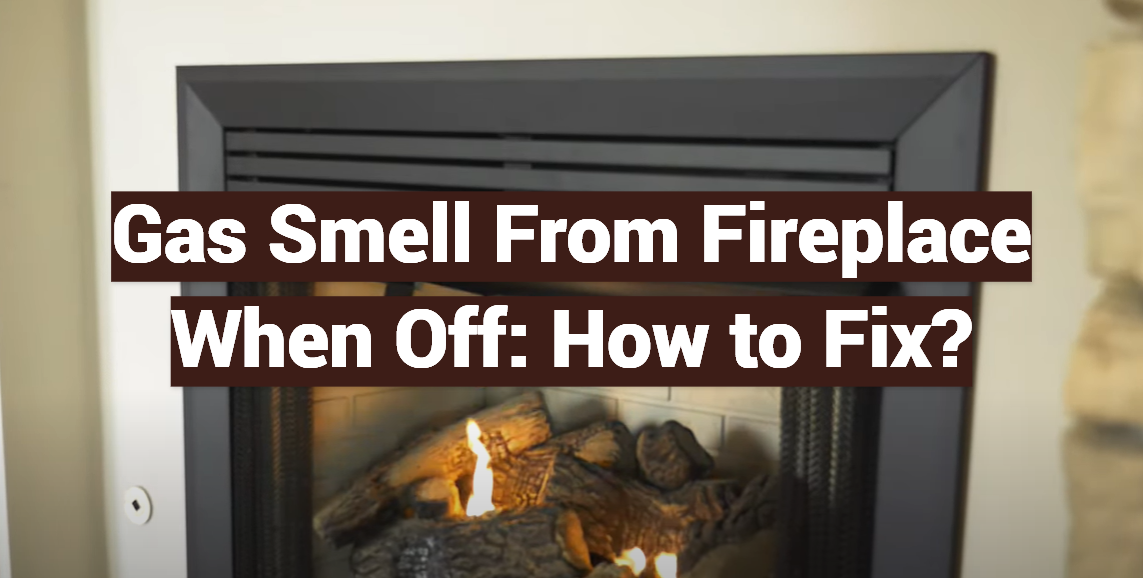

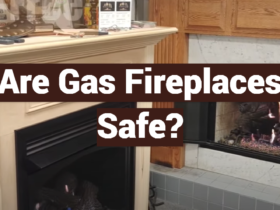

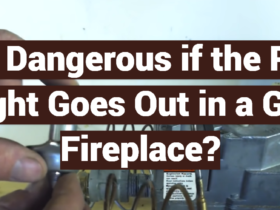
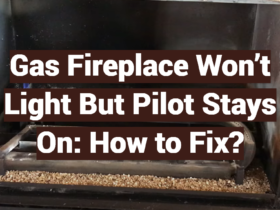
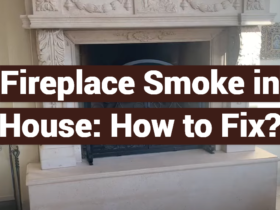

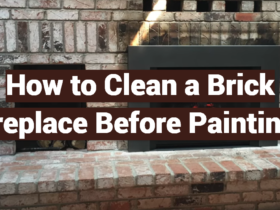
Leave a Review